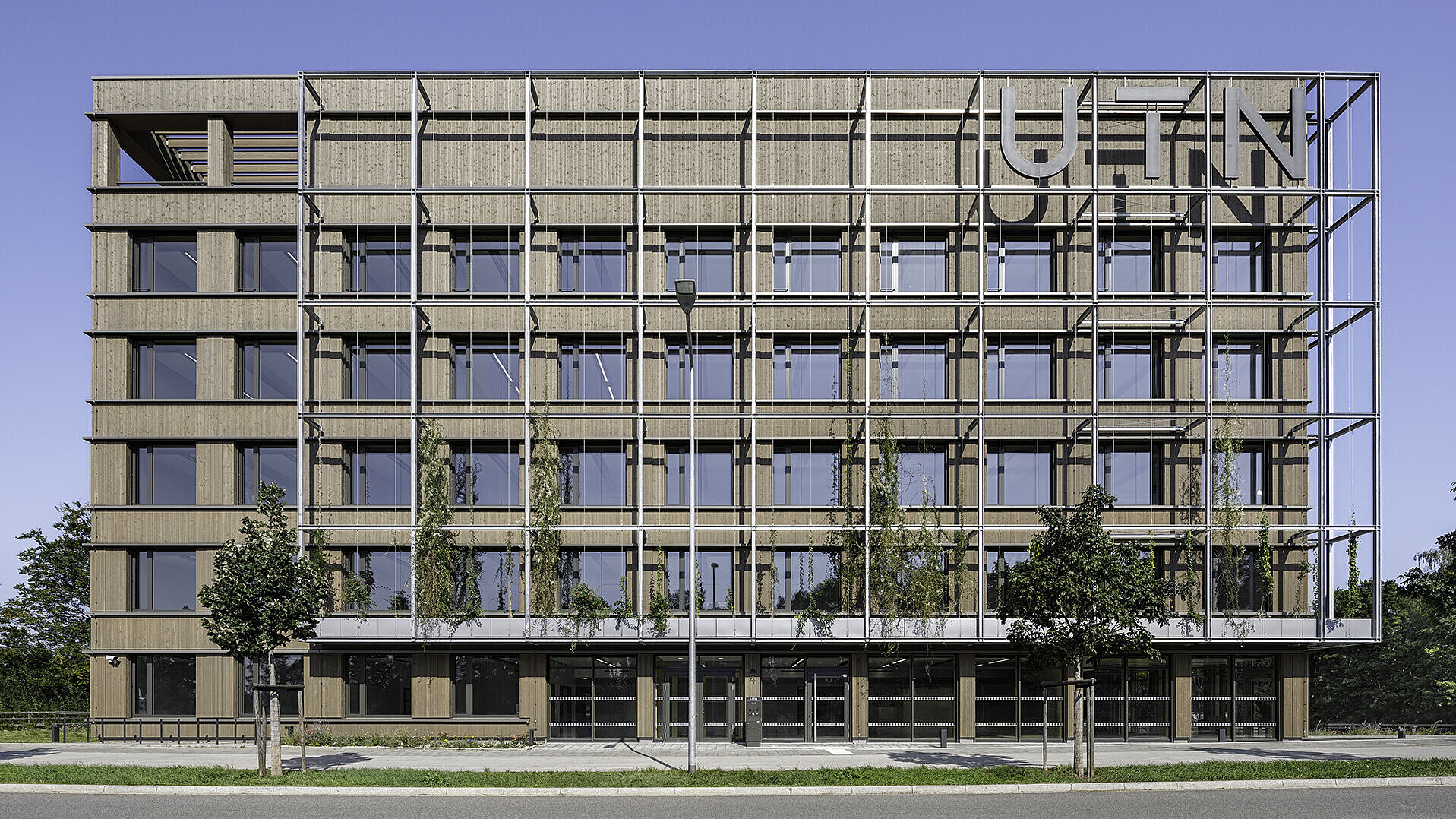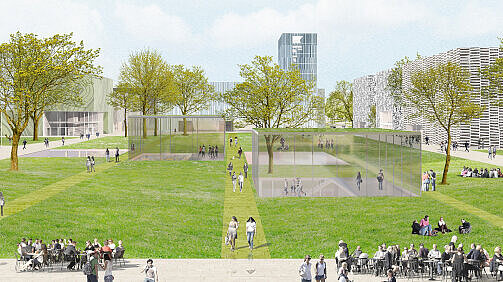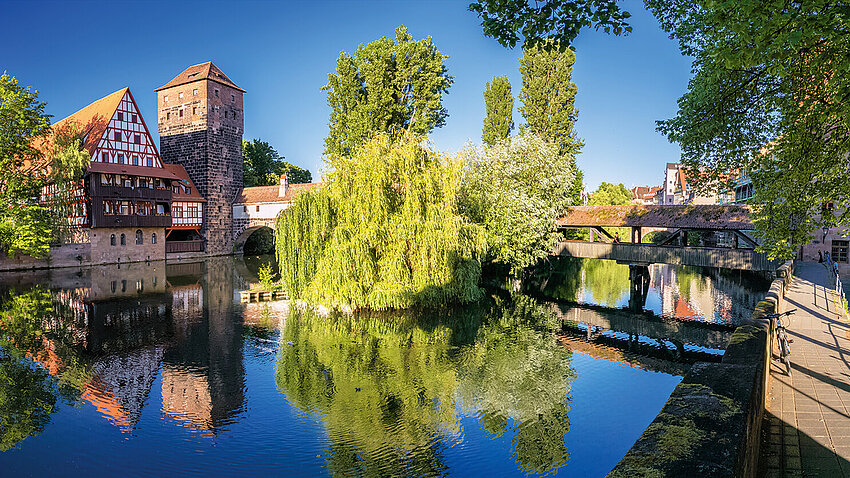University of Technology Nuremberg (UTN)
The University of Technology Nuremberg was founded on January 1st, 2021 and has been the first new foundation of a state-run university in Bavaria since 1978. With its consistently interdisciplinary approach, an innovative spectrum of subjects, new teaching methods and a future-oriented organizational structure, it will be a model university in the higher education landscape of Bavaria.
The University of Technology Nuremberg is interdisciplinary, international and digital. The interdisciplinary approach in particular characterizes teaching, studying and research. It is one of the major aims of the University of Technology Nuremberg to interlink engineering sciences with other topics of society. For this reason, the new university will not only offer engineering and technical sciences, but also humanities, natural and social sciences – and will combine them with each other.
Pursuant to its international approach, most of the courses are held in English. The digital approach of this institution is reflected in corresponding teaching methods, equipment and certain teaching and research focuses. Another characteristic of the new university is a good student-teacher ratio, with an envisaged student-teacher ratio of 1:25. Upon completion, up to 6,000 young people will be able to study on an urban campus, which is embedded in the surrounding quarters and which combines study, teaching and living.
Faculties
- Department Computer Science & Artificial Intelligence
- Department Liberal Arts and Social Sciences
Degree Courses
The University of Technology Nuremberg offers the following international degree courses in English:
Artificial Intelligence & Robotics (M.Sc.)
Human and Artificial Intelligence (M.Sc. / M.A.)
Contact Address and Useful Links
Technische Universität Nürnberg (UTN)
StaRs – School of Students and Young Researchers
Dr.-Luise-Herzberg-Straße 4
90461 Nürnberg
Tel: +49 911 9274-1300
study(at)utn.de
www.utn.de/en/
Some Facts on Nuremberg
The City of Nuremberg is a district of its own and is situated in the District of Middle Frankonia. With more than half a million inhabitants, it is the second-biggest city in Bavaria. Together with its surrounding cities and districts it forms the Metropolitan Region of Nuremberg, one of the most innovative conurbations in Europe.
Nuremberg offers a wide variety of academic institutions, ranging from fine arts to artificial intelligence and from universities to start-up centers. All these institutions form an agile ecosystem for innovations, creating the ideal basis for creative minds from science, research and industry.





